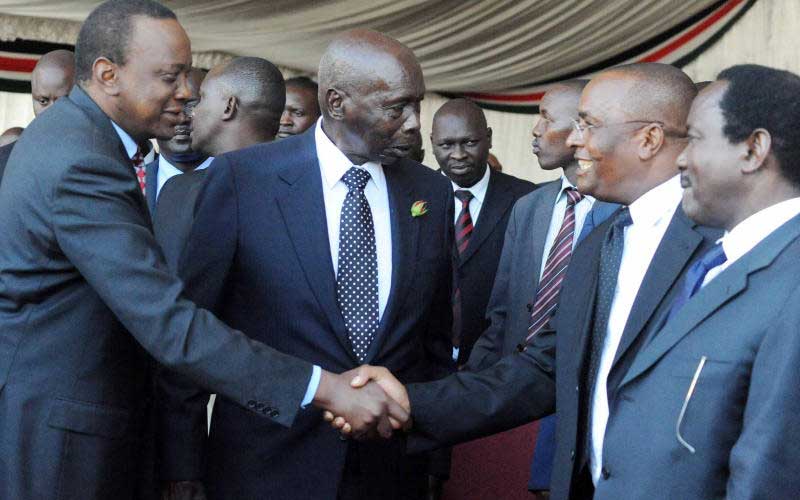×
The Standard e-Paper
Join Thousands Daily

President Daniel arap Moi and Uhuru Kenyatta at a past function. [File, Standard]
The shadow of influence that Daniel arap Moi cast on Kenya’s political landscape kept growing even after he retired in 2002.